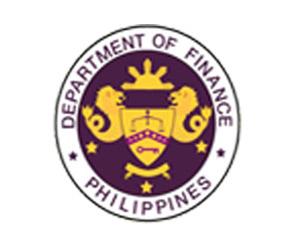Bankers, brokers set meet with DoF to avert crisis

TAX ISSUE The Department of Finance is set to meet with bankers and brokers on Monday, October 24, 2011, to try to resolve contentious taxation issues related to the PEACe bonds, which matured last week. The DoF insists on collecting a 20-percent final withholding tax on about P35 billion worth of the PEACe bonds.
Leaders of the financial community will dialogue with top officials of the Department of Finance (DoF) on Monday in a last-ditch attempt to resolve contentious taxation issues that threaten to become long drawn out legal battles and a drag on the local investment climate.
Philippine Stock Exchange chairman Jose T. Pardo said the meeting would bring together officials of the Bankers Association of the Philippines (BAP), the local bourse, representatives of the business community and the fiscal authorities led by Finance Secretary Cesar Purisima.
“What we want is for both sides to hear out each other’s concerns and for both sides to come to an understanding on these issues,” said Pardo, who brokered the meeting between both camps.
In recent weeks, the rift between the financial community and fiscal authorities have widened, culminating in last week’s insistence by the DoF on collecting a 20-percent final withholding tax on about P35 billion worth of so-called PEACe bonds, which matured after a decade last week.
This was opposed by the BAP and a consortium of eight banks, which petitioned the Supreme Court to issue an injunction against the government pending the resolution of the dispute. The high tribunal issued an injunction last week.
Article continues after this advertisementPSE president Hans Sicat said the broader investment community stood in solidarity with the position of the banking system opposing the 20-percent tax because changing the terms of the bonds after these were sold to buyers might cast doubts on the government’s future bond deals.
Article continues after this advertisement“All you have to do is look at the term sheet of those bonds when they were sold,” Sicat said, pointing to their original status as having been exempt from the final withholding tax.
Nerves are also raw between the DoF and the PSE after the former insisted that it would slap higher capital gains tax on stock transactions of publicly listed companies with less than 10 percent of their outstanding stock freely traded on the bourse.
At present, stocks traded on the PSE are taxed only one half of one percent of the gross transaction value—an incentive offered to both issuers and investors to help deepen the capital markets in the country.
Sicat explained that the DoF’s policy on imposing the full capital gains tax—and thus revoking one of the companies’ privileges as listed firms—was something only the PSE could do under the law.
The PSE chief said, however, that the equities investment community was willing to implement changes in its prevailing system to help harmonize its rules with what the Bureau of Internal Revenue wanted. This included raising annual listing fees of companies that fail to comply with the 10-percent minimum free float rule as a means of encouraging them to sell more shares to the public.
Finally, financial and business community representatives would also raise the issue of the proposed new tax form which, they argued, was a revival of the BIR’s widely criticized Annual Information Return policy that was shelved early this year.